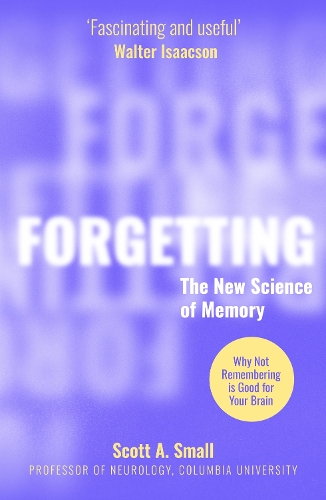
Forgetting: The New Science of Memory
(Paperback)
Publishing Details
Forgetting: The New Science of Memory
By (Author) Scott A. Small
Canelo
August Books
26th August 2025
22nd May 2025
United Kingdom
Classifications
General
Non Fiction
Alzheimers, dementia, Parkinsons disease and other neurodegenerative diseases
Memory improvement and thinking techniques
Popular science
Neurosciences
153.125
Physical Properties
Paperback
224
Width 129mm, Height 198mm
Description
'Fascinating and useful', Walter Isaacson, bestselling author of The Code Breaker and Leonardo da Vinci
'Upbeat', The Wall Street Journal
Racking your brain Drawing a blank Maybe its not such a bad thingUntil recently, it was largely believed that forgetting served no purpose. Besides causing slight frustration, the odd slip of the mind was thought of as an inevitable but harmless defect in the brains functionality.
But new research in psychology, neurobiology, and computer science tells a different story. Forgetting is not a failure of our minds, nor is it a benign glitch it is, in fact, good for us, and is a required function for our minds to work best. As annoying as a lapse can be, its precisely this that opens up our minds to making better decisions, experiencing joy, and flourishing artistically.
Through case studies, personal anecdotes, and scientific explanations, Professor Scott A. Small challenges the conventional wisdom that memory retention is always beneficial. He provides a comprehensive look at the benefits that forgetting can bring to our cognitive and creative abilities, emotional well-being, and even our wider societal health.
So the next time you forget where you left your keys, remember that a little forgetting does a lot of good.
Author Bio
Professor Scott A. Small is the director of the Alzheimer's Disease Research Center at Columbia University. He has published more than 140 studies on memory function and malfunction, research that has been covered by The New York Times, The New Yorker, and Time. His insight into Alzheimer's disease recently led to the formation of Retromer Therapeutics, a new biotechnology company which he co-founded.
